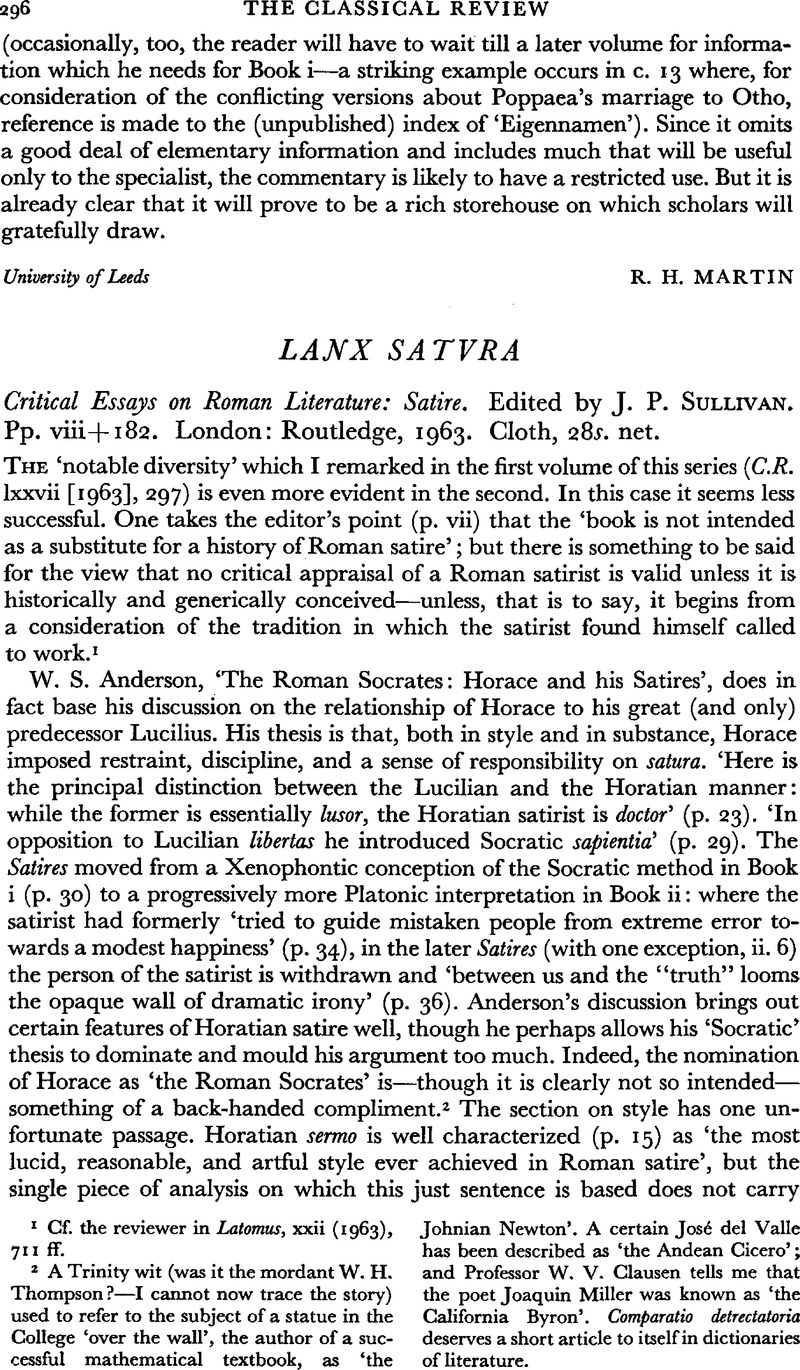No CrossRef data available.
Article contents
Lanx Satvra - Critical Essays on Roman Literature: Satire. Edited by J. P. Sullivan. Pp. viii + 182. London: Routledge, 1963. Cloth, 28s. net.
Published online by Cambridge University Press: 27 February 2009
Abstract

- Type
- Reviews
- Information
- Copyright
- Copyright © The Classical Association 1964
References
page 296 note 1 Cf. the reviewer in Latomus, xxii (1963), 711 ff.Google Scholar
page 296 note 2 A Trinity wit (was it the mordant W. H. Thompson?—I cannot now trace the story) used to refer to the subject of a statue in the College ‘over the wall’, the author of a successful mathematical textbook, as ‘the Johnian Newton’. A certain José del Valle has been described as ‘the Andean Cicero’; and Professor W. V. Clausen tells me that the poet Joaquin Miller was known as ‘the California Byron’. Comparatio detrectatoria deserves a short article to itself in dictionaries of literature.
page 297 note 1 primum ego me illorum dederim quibus esse poetas | excerpam numero …
page 297 note 2 I take it that this means ‘seeming’ rather than ‘obvious’.
page 297 note 3 Cat. 62. 45 dum, 50 se, 64. 145 dum, 149 te, 211 se, 254 tum, 350 cum, 403 se; Virg. A. i. 109 quae, 289 tu, 322 quam, 378 qui, 388 qui, 455 se 568 tam, 623 iam; cf. Platnauer, M., Latin Elegiac Verse, p. 78.Google Scholar
page 297 note 4 Cf. Fraenkel, E., Horace, p. 310;Google ScholarRudd, N., C.Q., N.s. x (1960), 177.Google Scholar
page 297 note 5 By the same token, Lucan thought that Virgil wrote the Culex.
page 297 note 6 On Persius iii. 3 (p. 53): ‘it can no longer be taken for granted that the bedside plural is a legitimate Latin construction’.
page 298 note 1 To forestall cavil, I add that the immediate context shows that Sullivan is using ‘form’ and ‘genre’ as equivalents.
page 298 note 2 I hope I may be forgiven for referring to another article of my own, ‘The First Satire of Juvenal’, Proc. Camb. Phil. Soc, N.S. viii (1962),29 ff.Google Scholar
page 298 note 3 This is really more accurate taken as a gloss on the whole poem: experiar quid concedatur cannot be pressed quite as far as Mason appears to wish.




